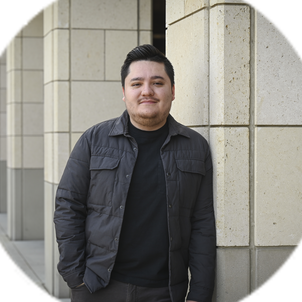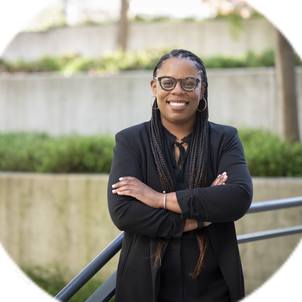Whether you’re a student, a faculty member, or a staff member, I think the desire to succeed is what motivates persistence. If you can’t envision success, it’s hard to even identify what steps to take to achieve your goals.
If you can visualize your trajectory, can see the endpoint, whether you’re solving a problem, looking for a more challenging new job, or seeing your students get their degrees, you have the best chance of success. And if you see the part you play in that you’ll leave work every day feeling fulfilled and maybe even inspired. As a student trying to solve a problem, if you succeed in solving it, you probably won’t care how many times you failed along the way.
Students sometimes ask me is, What do you do? The simplest explanation is that I support the staff who support the students and faculty. I’m responsible for financial management, staff and HR management, facilities and operations management, IT and communications, student affairs, faculty affairs, and so on. Administrative staff are here to support and execute the mission defined by the faculty, and an important part of my job is leading the department’s staff and giving them the tools and resources to provide that support effectively.
My job sometimes seems like a little bit “keeping the lights on” and a little bit ensuring people get paid, but the thing I love about it the most is putting a team of people together and giving them a meaningful project. If I can assemble the right teammates, motivate them, and give them a timeline, I’m doing my job best when I get out of the way. It’s almost like I can leave the room, come back and the job will be done. To me, that’s magic.
As a former Stanford graduate student and now a staff member, I would encourage students to meet directly with faculty as much as they can. You get the most out of your Stanford experience through direct interaction with your professors and advisors, as well as your fellow students, and you have the opportunity for that at Stanford because it’s smaller and more intimate than larger universities.
Related spotlights

Lara Weed

Sebastian Fernández

